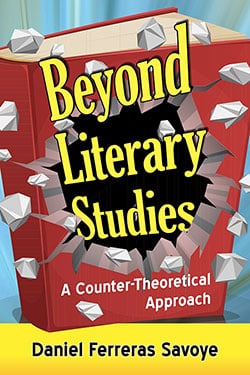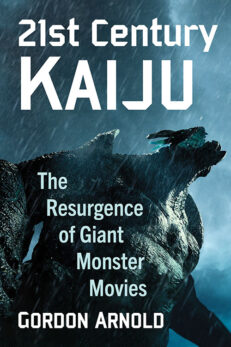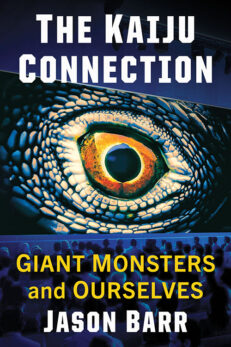Beyond Literary Studies
A Counter-Theoretical Approach
$49.95
In stock
About the Book
This response to the current crisis in the field of literary studies describes the fundamental flaws of poststructuralist literary criticism, which has become a self-serving enterprise at the expense of scholarship at large and students in particular. Outlining an improved approach that meets the expectations of 21st-century students and teachers, the author proposes a new definition of the literary object of study which addresses the inconsistencies of the literary canon by including nontraditional narratives such as films, comic books and pop songs.
About the Author(s)
Bibliographic Details
Daniel Ferreras Savoye
Format: softcover (6 x 9)
Pages: 304
Bibliographic Info: notes, bibliography, index
Copyright Date: 2017
pISBN: 978-1-4766-6855-0
eISBN: 978-1-4766-2784-7
Imprint: McFarland
Table of Contents
Acknowledgments vi
Preface 1
Introduction: The Great Academic Publishing Bubble 6
Part I: The Emperor’s New Rhetoric
1. Theorize or Agonize 12
2. Adventures in Criticism 17
3. A Question of Authority 21
4. Burn After Reading 30
5. Pardon My French 34
6. Grand Theft Theory 41
7. The Theme Behind the Method 47
8. Narcissistic Studies 51
9. Academic Starmania 59
10. A Fish Called Stanley 66
11. The Depth of Superficiality 69
12. Escape from the Text 76
13. Exploded Theory 80
Part II: Relative Synthesis
14. Deconceptivist Mode 90
15. Definitions of Literature 91
16. The Imaginary Multiverse 106
17. Parallel Dimensions Studies 122
18. A Theory of Theories 135
19. Welcome to Imaginology 184
20. Genres and Modes 216
21. Elegance in Theory 252
22. Semiosphere to Semiosphere 255
Conclusion: The Triumph of Imaginology 259
Chapter Notes 267
Works Cited 283
Index 291





